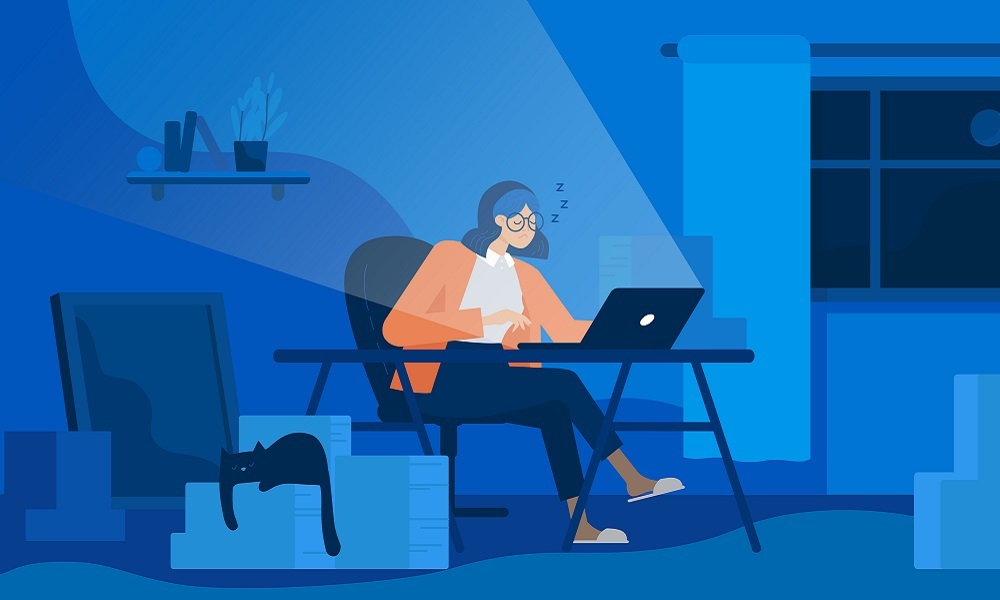‘Whether that’s family time, leisure time, or exercise or other hobbies, really having time and mental space to engage in those things just helps to maintain a sense of wellbeing.’ Dr Joanne Beames from the Black Dog Institute shares why switching off is important for our wellbeing and some useful strategies to set work-life boundaries these holidays.
After many teachers and school leaders experienced lengthy periods of remote learning once again this year, where the lines between work and home lives are increasingly blurred, the challenges of switching off from work might be even greater these holidays. In this article, we’re joined by Dr Joanne Beames, a Postdoctoral Fellow and clinical psychologist based at the Black Dog Institute, who shares some evidence-based strategies educators can use to switch off and put their wellbeing first, or set some boundaries if you need to do work-related tasks over the holidays.
Our work and home lives have overlapped throughout 2021 during periods of remote learning. This is particularly the case for teachers, who have had to work extensively to support students and their families through new ways of learning during the pandemic.
Dr Joanne Beames is lead author of School teachers: the forgotten frontline workers of Covid-19, which explores how COVID-19 has affected teacher mental health, particularly due to increased work hours, social isolation, excessive screen time, physical workspace limitations and stress.
The importance of switching off for our wellbeing
‘Not switching off and that feeling of burnout is really common in teachers,’ Beames tells Wellbeing by Teacher. ‘So I think that switching off, therefore, is really important because it just allows people to sort of recuperate and mentally rest.
‘…We know that when people have more energy, they’re just able to more actively engage in other activities that they value outside of work, which is just really important for everyone. Whether that’s family time, leisure time, or exercise or other hobbies, really having time and mental space to engage in those things just helps to maintain a sense of wellbeing.’
Starting small and setting realistic plans to prioritise activities you value is important for setting yourself up for success. Beames adds that keeping consistent across sleep and wake schedules, exercise routines, and the general time set aside for screen time can also be beneficial.
Strategies for effectively switching off from work
Beames shares a handful of strategies for effectively switching off from work during periods of leave or at the end of a working day. These strategies might be particularly useful if you find yourself needing to complete some work over the holidays.
Things like setting a specific time to finish work and working in a specific area of the home if possible – which have also been recommended by other experts to Wellbeing by Teacher – are equally as effective when opening your work laptop between school terms.
Another simple and effective strategy is using transition activities. These activities are designed to signal to the brain that work has ended and allow you to direct your attention to other tasks so you can mindfully engage in them rather than being preoccupied by what still needs to be done, Beames explains.
‘These activities are really individual and can be different for everyone, but they’re just kind of things like getting changed out of your work clothes at the end of the day, or having a shower … going for a walk outside, seeing some non-work friends. So, you know, speaking about other things rather than what’s happened during the day,’ she shares ‘Even things like exercise or playing with a pet or family time. All of these things can really help to disconnect the brain from all the work stuff.’
Practicing practical problem solving can also be helpful in working to reduce stress and worry associated with work and your personal lives, in order to lift and boost your mood. It involves shifting your attention to aspects of life that are controllable, Beames says, and brainstorming realistic solutions to these. ‘And this process is really helpful because it helps people to make decisions and take actions in their lives. Whereas, when we’re stuck in that period of stress and worry, we often avoid things, withdraw, and we kind of become a bit stuck – which is a bit overwhelming for everyone.’
These holidays may be an ideal time for you to try implementing these strategies and make them a consistent part of your routine, because, as Beames shares, they are really something that needs to be repeated. ‘It’s very easy to say what these strategies are, but it’s just very typical to experience challenges with being able to implement them consistently. So, it is all really about practise over time.’
Combatting social isolation felt during lockdown periods
Beames and colleagues mention in their paper that the research is showing increased reporting of feelings of social isolation by teachers.
She adds that these holidays are a great opportunity to start to plan, schedule and engage in social activities you feel comfortable in participating in. Keeping your support networks close, whether they’re colleagues or trusted friends, can help affirm that you are not alone with all of these challenges and changes. ‘Because often it can feel quite isolating and alone if no one is talking about it, or they think that everybody is coping when they’re not,’ she says.
Are you an educator working in a school setting? If so, are you interested in submitting an article for publication on Wellbeing by Teacher? We’d love to hear about how you care for your own wellbeing. Reach out to the team by emailing teacherwellbeing@acer.org with your story idea. We’ve also put together a handy guide to help you get started.


